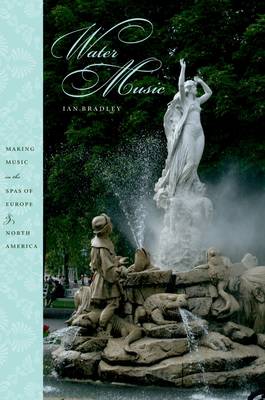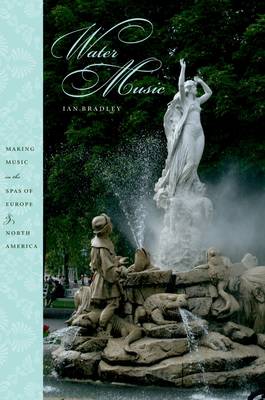
Vous voulez être sûr que vos cadeaux seront sous le sapin de Noël à temps? Nos magasins vous accueillent à bras ouverts. La plupart de nos magasins sont ouverts également les dimanches, vous pouvez vérifier les heures d'ouvertures sur notre site.
- Retrait gratuit dans votre magasin Club
- 7.000.000 titres dans notre catalogue
- Payer en toute sécurité
- Toujours un magasin près de chez vous
Vous voulez être sûr que vos cadeaux seront sous le sapin de Noël à temps? Nos magasins vous accueillent à bras ouverts. La plupart de nos magasins sont ouverts également les dimanches, vous pouvez vérifier les heures d'ouvertures sur notre site.
- Retrait gratuit dans votre magasin Club
- 7.000.0000 titres dans notre catalogue
- Payer en toute sécurité
- Toujours un magasin près de chez vous
49,45 €
+ 98 points
Description
Many of the most famous composers in classical music spent considerable periods in spa towns, whether taking in the waters, or searching for patrons among the rich and influential clientele who frequented these pioneer resorts, or soaking up the relaxing and decadent ambience of these enchanted and magical places. At Baden bei Wein, Mozart wrote his Ave Verum Corpus, and Beethoven sketched out his Ninth Symphony. Johannes Brahms spent 17 summers in Baden-Baden, where he stayed in his own specially-built composing cavern and consorted with Clara Schumann. Berlioz came to conduct in Baden-Baden for nine seasons, writing his last major work, Beatrice and Benedict, for the town's casino manager. Chopin, Liszt, and Dvorak were each regular visitors to Carlsbad and Marienbad. And it was in Carlsbad that Beethoven met Goethe. Concerts, recitals, and resident orchestras have themselves played a major role in the therapeutic regimes and the social and cultural life of European and
North American watering places since the late eighteenth century. To this day, these spa towns continue to host major music festivals of the highest caliber, drawing musicians and loyal audiences on both local and international levels.
This book explores the music making that went on in the spas and watering places in Europe and the United States during their heyday between the early-eighteenth and the mid-twentieth centuries. Music was a hugely important part of the experience of taking a spa cure. Bands played during the early morning and late afternoon while people took the waters and bathed. Spa orchestras and ensembles entertained those gathering socially or resting in assembly rooms, pump rooms and in gardens and parks. In the evenings spa guests enjoyed concerts, visits to the theatre, balls, dances and gambling sessions at the casino, at all of which music played a major role.
Expert author Ian Bradley draws on original archival material and the diaries and letters of composers. His book ranges chronologically and geographically, beginning with Bath and Baden near Vienna, which both flourished in the eighteenth century, continuing through Baden-Baden, the Bohemian spas and Bad Ischl in the nineteenth century and on to Buxton and Saratoga Springs which saw their glory days in the early twentieth century. A concluding chapter brings the subject up to date with a review of the musical activities taking place in spa towns today and of the music that accompanies treatments in modern spas, now so ubiquitous and so important and growing a feature in the booming world of leisure, tourism, health and well-being.
North American watering places since the late eighteenth century. To this day, these spa towns continue to host major music festivals of the highest caliber, drawing musicians and loyal audiences on both local and international levels.
This book explores the music making that went on in the spas and watering places in Europe and the United States during their heyday between the early-eighteenth and the mid-twentieth centuries. Music was a hugely important part of the experience of taking a spa cure. Bands played during the early morning and late afternoon while people took the waters and bathed. Spa orchestras and ensembles entertained those gathering socially or resting in assembly rooms, pump rooms and in gardens and parks. In the evenings spa guests enjoyed concerts, visits to the theatre, balls, dances and gambling sessions at the casino, at all of which music played a major role.
Expert author Ian Bradley draws on original archival material and the diaries and letters of composers. His book ranges chronologically and geographically, beginning with Bath and Baden near Vienna, which both flourished in the eighteenth century, continuing through Baden-Baden, the Bohemian spas and Bad Ischl in the nineteenth century and on to Buxton and Saratoga Springs which saw their glory days in the early twentieth century. A concluding chapter brings the subject up to date with a review of the musical activities taking place in spa towns today and of the music that accompanies treatments in modern spas, now so ubiquitous and so important and growing a feature in the booming world of leisure, tourism, health and well-being.







